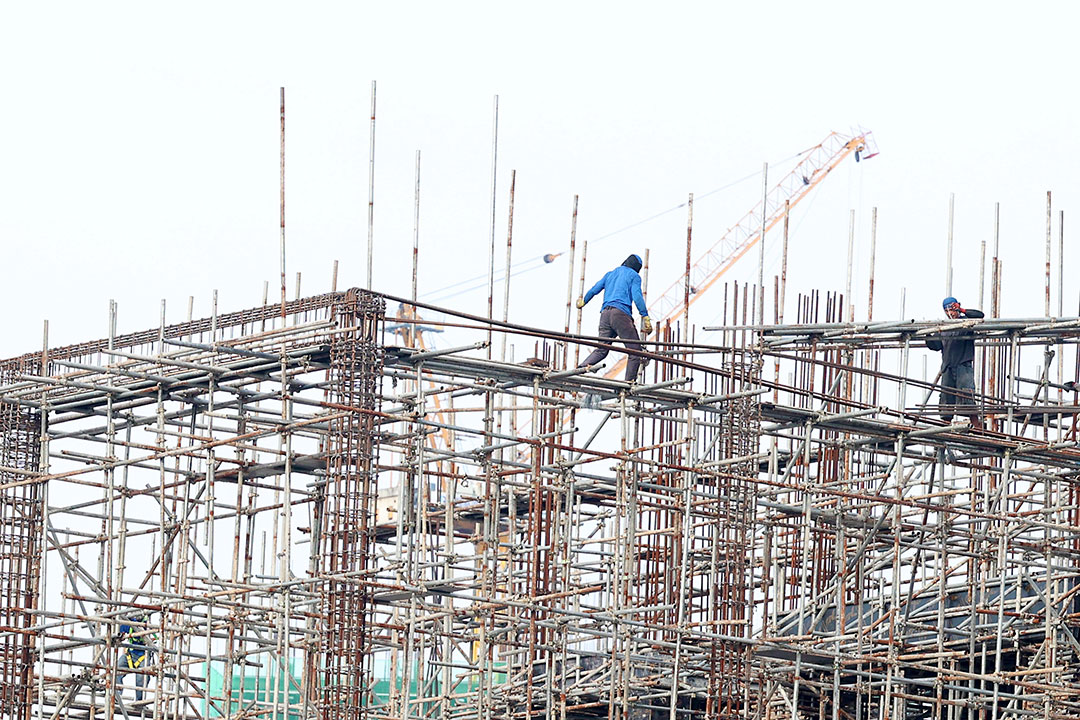
By Keisha B. Ta-asan, Reporter
THE P40 INCREASE in the daily minimum wage in the National Capital Region (NCR), which will take effect on Sunday (July 16), is unlikely to drive inflation beyond the central bank’s target band, the National Economic and Development Authority (NEDA) said.
“We estimate that the inflationary impact from the approved wage order would be minimal and is unlikely to push inflation above the central bank’s (2-4%) target range,” the NEDA told BusinessWorld via e-mail.
The National Capital Region Tripartite Wages and Productivity Board approved a P40 wage hike in NCR, bringing the daily minimum wage to P610 for workers outside the agriculture sector.
The minimum wage was also increased to P573 for those in the agriculture sector, service retail establishments with 15 or fewer workers and manufacturing companies with less than 10 workers.
Headline inflation slowed for a fifth straight month in June to 5.4% from 6.1% in May, as food and transport prices eased. Year-to-date inflation settled at 7.2%.
The BSP sees inflation returning to the 2-4% target range by October before averaging 5.4% this year.
However, NEDA said that a wage hike without an increase in labor productivity may drive up production costs that would be passed on to consumers through higher prices of goods and services.
It also noted that a wage hike in NCR would usually lead to other regions following suit, “which may amplify the overall economic impact.”
“Nevertheless, a modest wage increase that takes into account region-specific economic conditions and is complemented by improvements in labor productivity will result in moderate inflationary pressure,” the NEDA said.
Former BSP Deputy Governor Diwa C. Guinigundo said the P40 a day wage adjustment is “paltry,” but may trigger second-round effects.
“Only workers in the formal sector would seem to benefit from that. But I believe labor productivity has also improved over the years, so such an adjustment appears justified,” Mr. Guinigundo said in a Viber message.
“The problem is that this could trigger second-round effects, no matter how small it is. So, I hope in the tripartite discussion, it was made clear that producers and employers should not make this a pretext to escalate prices anew,” he added.
Bank of the Philippine Islands (BPI) Lead Economist Emilio S. Neri, Jr. said the minimum wage hike will keep inflation from dropping quickly to below 4%.
“Bottom line, we can’t conclude that higher minimum wages will lead to a bump up in inflation since it only covers a narrow portion of the labor sector. We can’t rule out an inflation spike, nonetheless, since a broader and more persistent hike in wages could have already begun,” Mr. Neri said.
Various labor organizations have filed petitions seeking to increase the daily minimum wage. The regional wage boards of Central Luzon, Calabarzon, Western Visayas and Central Visayas will likely decide on pending petitions by September.
Under the Labor Code, wage boards must consider demands for higher living wages amid movements in inflation and changes in each region’s cost of living.
According to the NEDA, the government will continue to pursue a comprehensive approach to protect the purchasing power of workers.
“This approach aims to implement immediate and medium-term strategies to mitigate inflation and alleviate its impact on low-income households,” it said.
It also said that the Inter-Agency Committee on Inflation and Market Outlook will further monitor the supply-demand conditions of agricultural products that may impact food inflation, as well as developments that would add to non-food inflation.
“Amidst emerging risks, including the onset of El Niño, it will then recommend interventions to ensure that inflation remains manageable and returns to a path consistent with the government’s targets,” the NEDA added.
The state weather agency last week announced the onset of the El Niño weather pattern, saying there is 56% chance that El Niño will be moderate to strong in the fourth quarter.
NEDA Secretary Arsenio M. Balisacan earlier said that a “slight El Niño” could cause agricultural production to decline by 1-2%.
Meanwhile, Mr. Guinigundo noted that if inflation continues to go down firmly in the coming months, a policy rate adjustment from the BSP will not be necessary.
“However, if we see otherwise, the tightening bias should be maintained,” he said.
The BSP has raised borrowing costs by 425 basis points from May 2022 to March 2023. This brought the policy rate to 6.25%, a near 16-year high.
The Monetary Board’s next meeting is on Aug. 17.
Wage hike unlikely to stoke inflation
Source: Bantay Radio
0 Comments